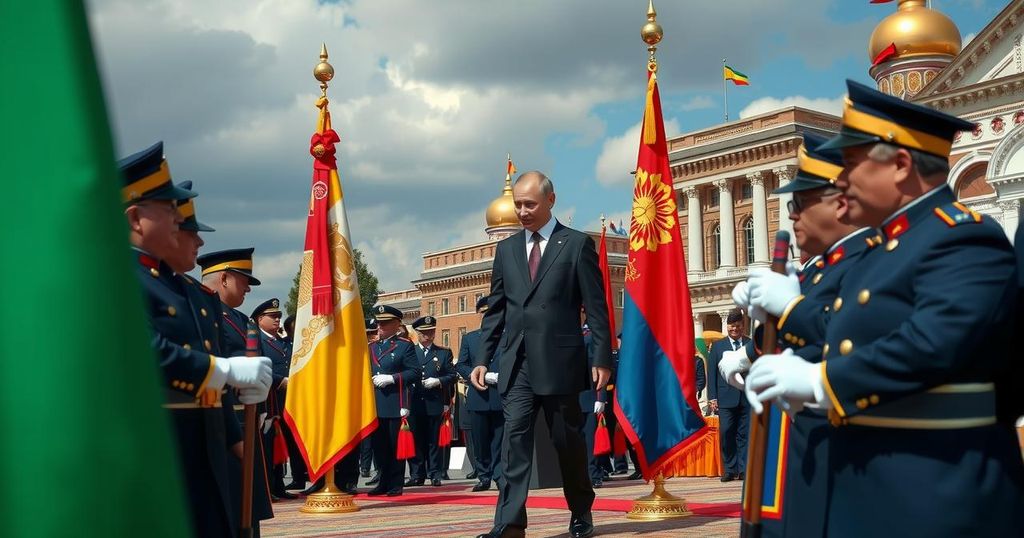Mongolia welcomed Vladimir Putin despite ICC war crimes accusations against him, highlighting its geopolitical balancing act between Russia and the West. The visit sparked international criticism, particularly from Ukraine and the EU, while local sentiment favored maintaining relations with neighboring powers.
Mongolia extended a warm welcome to Russian President Vladimir Putin upon his arrival in Ulaanbaatar, despite heightened international scrutiny and war crimes accusations against him stemming from the ongoing conflict in Ukraine. During his visit, which commenced on Monday night, Putin engaged in discussions with Mongolian President Ukhnaagiin Khurelsukh, highlighting the cordial relations and shared stance on various global issues. The meeting took place at the emblematic Genghis Khan Square, underscored by ceremonial music and the display of both national flags.
Putin faces an arrest warrant issued by the International Criminal Court (ICC) for allegedly overseeing the illegal deportation of Ukrainian children since Russia’s invasion of Ukraine in 2022. Ukrainian Prosecutor General Andriy Kostin condemned Mongolia’s decision not to detain Putin, asserting that this action undermines Mongolia’s international reputation. Meanwhile, a European Union representative expressed regret over Mongolia’s failure to fulfill its obligations under the Rome Statute that instituted the ICC.
Amid these tensions, the United States acknowledged Mongolia’s complex geopolitical positioning and expressed hope that Mongolian officials would engage in constructive discourse with Putin regarding the rule of law. Ulaanbaatar has historically maintained a neutral stance, not condemning Russia’s actions and opting for abstention during relevant United Nations votes. Local public sentiment reflected a reluctance to confront Putin directly, given Mongolia’s economic and cultural ties with both Russia and China.
Putin’s visit also coincided with ceremonies marking the 85th anniversary of a significant military victory by Mongolian and Soviet forces against Imperial Japan. Massive flags adorned Genghis Khan Square, and the event featured traditional military displays. Notably, a small group of activists sought to protest the visit but faced police intervention, highlighting the tight security measures in place. In light of this backdrop, experts noted that while the ICC warrant looms large, the primary concern for Mongolia remains its diplomatic relations with Russia.
The article centers on Russian President Vladimir Putin’s visit to Mongolia, which has drawn international intrigue due to ongoing war crimes allegations against him related to the conflict in Ukraine. Mongolia, a nation sandwiched between the geopolitical pressures exerted by Russia and China, has historically sought to balance its relations with both neighbors while navigating an independent democratic path since the dissolution of the Soviet Union in 1991. The ICC recently issued a warrant for Putin’s arrest, putting Mongolia’s international commitments under scrutiny as officials opted not to comply, citing the importance of maintaining positive ties with Russia.
In conclusion, Mongolia’s decision to honor President Putin with a ceremonial welcome amidst war crimes allegations illustrates the country’s delicate balancing act in international relations. While Ulaanbaatar faces calls to adhere to its obligations under the ICC, its leadership appears to prioritize diplomatic stability over adherence to external pressures, particularly given its geographic and economic realities. The ongoing dynamics between Mongolia, Russia, and the West remain complex and politically sensitive in light of recent events.
Original Source: www.channelnewsasia.com






